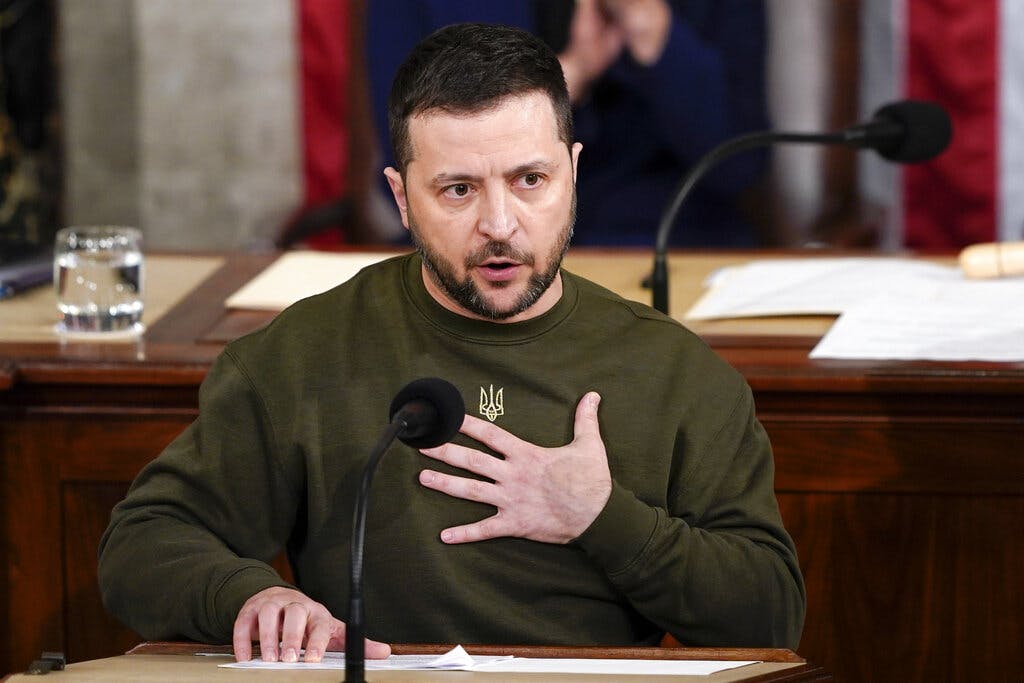Prelude to Appeasement? Beware of Comparing a Russian Deal on Ukraine With the Armistice in Korea
Such a deal in Ukraine would more likely lead to the kind of defeat we were dealt in Vietnam.

A columnist for the Financial Times, Gideon Rachman, is advancing the notion of a Korea-style outcome for Ukraine. His argument is “the Korean war never formally ended” but closed in an armistice that “stopped the fighting” and “essentially froze the conflict.” Why not something like that for Ukraine?
Take it from one who has covered Korea for 50 years: Comparisons between the possible outcome in Ukraine and the ending of the Korean War are misplaced. The Korean War truce did not freeze the conflict. It stopped it totally, leaving the Republic of Korea, South Korea, supported by American and United Nations forces, in charge below a demilitarized zone that’s held for nearly seven decades.
The armistice showed the North Koreans and Chinese had gotten nowhere in a conflict in which about four million people had died, the majority civilians. South Korea, in the face of North Korean attempts at infiltration, terrorism, and chicanery, has grown into the world’s ninth wealthiest nation. North Korea, under dynastic rule, exists in poverty while terrorizing its people and brandishing nukes and missiles.
So why do we hear suggestions that a Korea-style armistice could provide an example for Ukraine? Mr. Rachman belittles what he says are conservative fears of another “Munich” — and leftist fears of a replay of “Vietnam.” Might the denouement in Ukraine resemble the 1973 Paris peace that was supposed to end Vietnam? And what about the Munich agreement of 1938?
Both those deals led to humiliation and disaster. In Vietnam, the North Vietnamese overran South Vietnam, defeating the Saigon regime in April 1975 after the Americans pulled out, refused air support and stopped shipping supplies. Post-Munich, the British prime minister, Neville Chamberlain, proclaimed “peace in our time,” before Hitler took over Czechoslovakia and the world plunged into war.
Back to the Korean War analogy: The Republic of Korea, i.e., South Korea, by the end of the war had several hundred thousand troops. The Americans had about 300,000 in the country, a thousand times the number of American military advisers who were there when the North Koreans invaded in June 1950. American air power had pulverized just about every North Korean city and town.
Comparisons between President Zelensky and Winston Churchill are well and good, but no American or Western European troops are in Ukraine, and no foreign power is providing air support. President Biden believes pumping in unbelievable billions of dollars’ worth of military hardware will do the job, but Patriot missiles are no guarantee against Russia’s missiles and warplanes.
Nor can we be certain who controls what. Should Ukraine cede the southeastern region, long since taken over by Russian troops, just as the Korean War truce stopped the fighting on the line dividing North and South? Should Zelensky agree to permanently losing Crimea, which the Russians took over in 2014?
Or might a “demilitarized zone” similar to that in Korea forever stop the Russians from crossing the line into regions held by Ukraine forces, bereft of air support from America and its NATO allies? Ukraine is the largest country geographically in Europe after Russia, whose leaders ruled it periodically from tsarist times to the Soviet era. Ukraine has fewer than 200,000 troops and an air force made up of old Russian planes.
There’s no valid comparison between the Korean War armistice and a similar armistice for Ukraine. The Korean War truce has been unbelievably successful. It’s fashionable for people to say the Korean War still is not over, since there’s no peace treaty, but South Korea, allied with America, is incredibly prosperous and at peace. The Korean War armistice has worked far better than many a treaty.
A similar deal for Ukraine would more closely resemble the Paris peace in Vietnam that ceded large portions of the South to the invading North Vietnamese. Or, worse yet, it might be comparable to the Munich agreement that yielded the Sudetenland to Nazi Germany, leaving Czechoslovakia exposed and defenseless.
Ukraine under such a deal, like South Vietnam and Czechoslovakia, would be the loser. Ukraine has to go on holding the Russians at bay, praying the Americans won’t desert them in a deal that the Russians would see as a prelude to victory.

